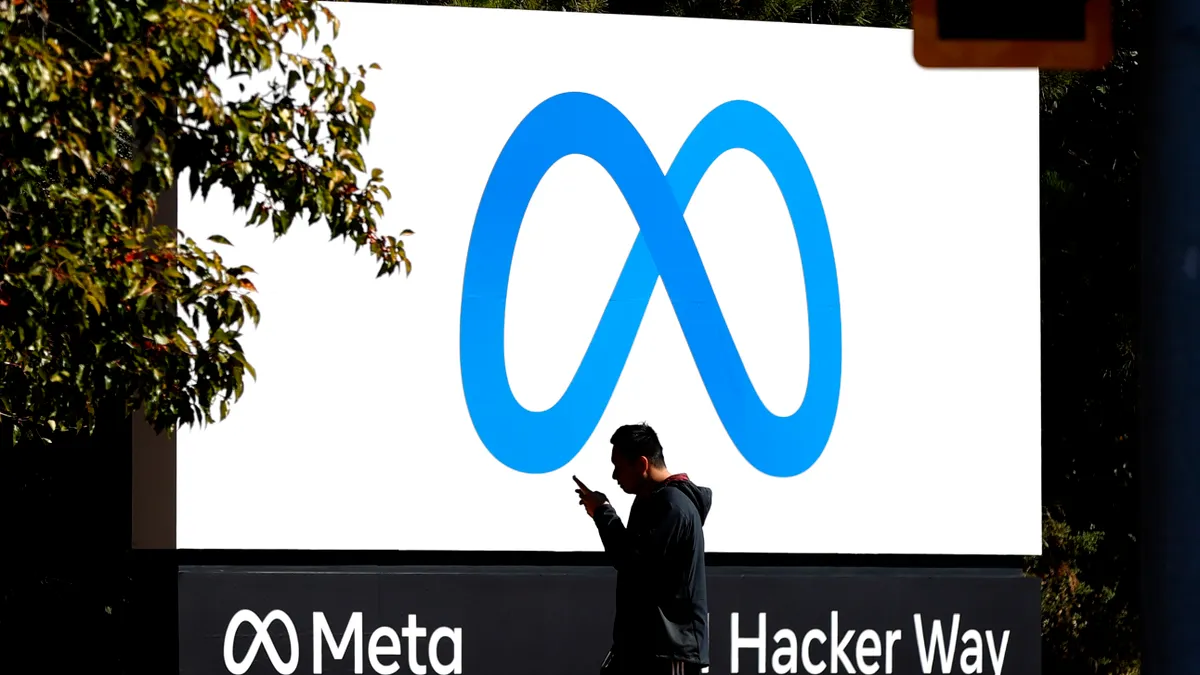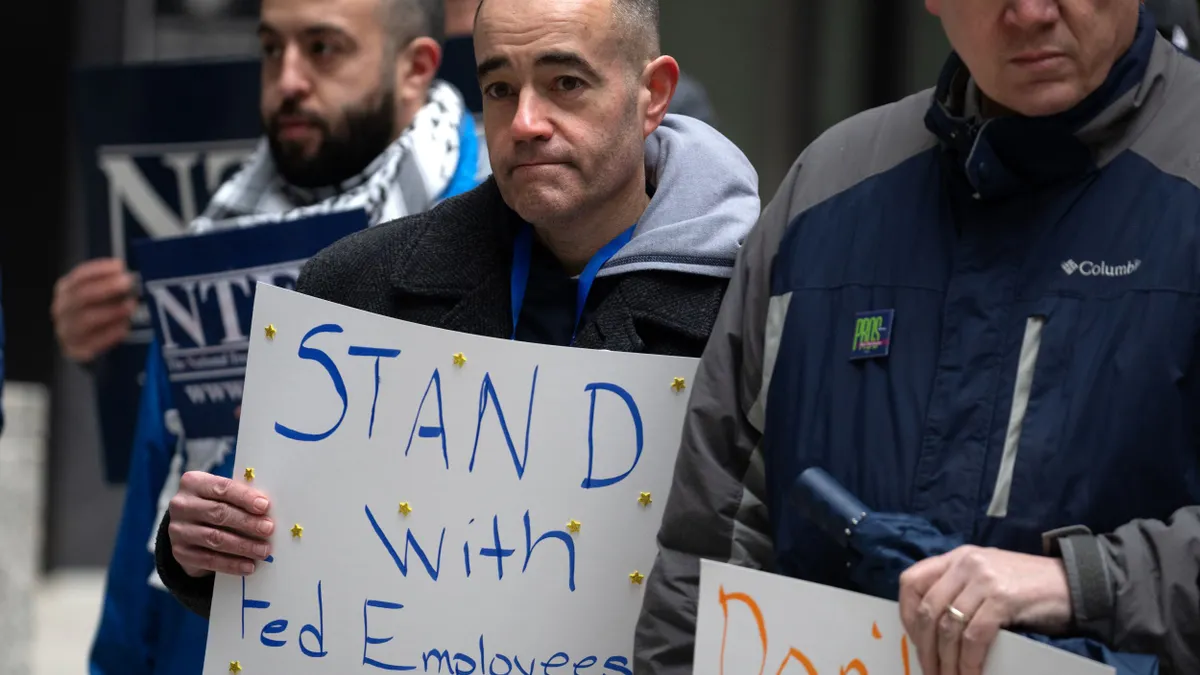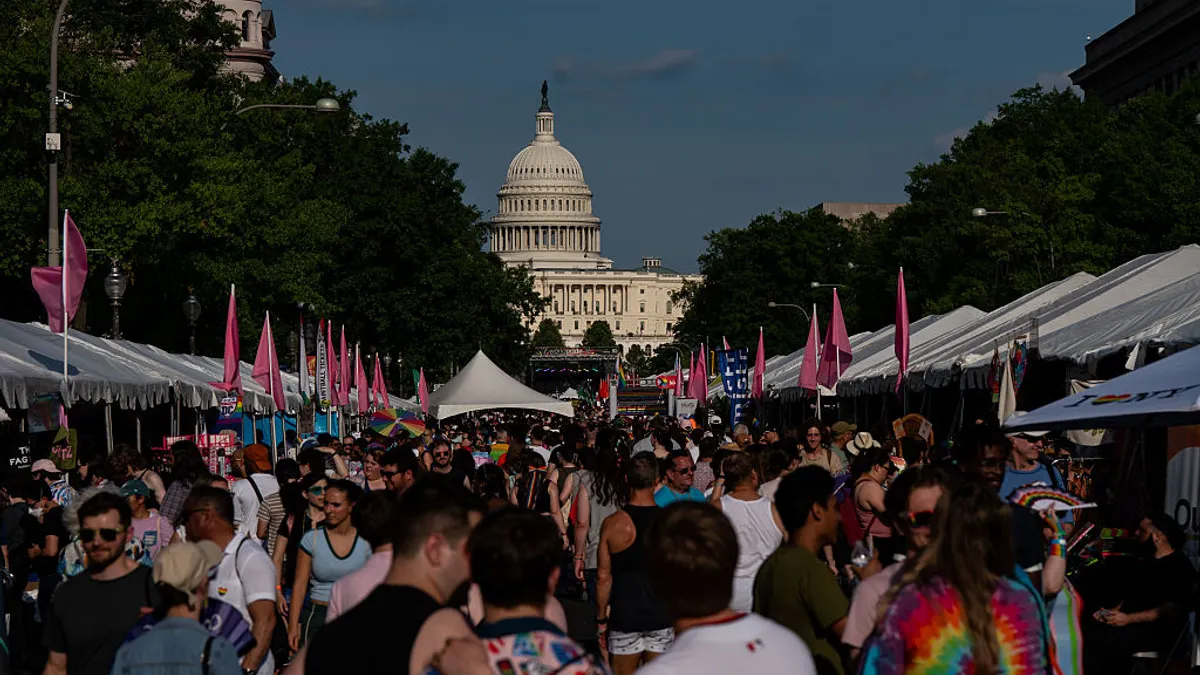Editor's note: This is a contributed piece by Dustin Carlton, an attorney at Bass, Berry & Sims PLC where he represents employers in a variety of traditional labor and employment matters. He can be reached at [email protected].
Marijuana has been listed as an illegal Schedule I drug under federal law since Congress passed the Controlled Substances Act in 1970 (CSA). However, in recent years, a number of states have passed bills that decriminalize or legalize medical or recreational marijuana use. As of the writing of this article, nine states and the District of Columbia have adopted measures legalizing marijuana for recreational and medicinal use, and 30 states have legalized medical marijuana use. According to a Gallup poll, support for the drug reached new highs in 2017, with the poll showing that 64 percent of Americans favor legalization. When asked specifically about the legalization of medical marijuana, that number grew to 83 percent, according to a recent Marist College survey.
The growing acceptance of legalized marijuana has undoubtedly been propelled by the Obama administration’s decision to direct federal prosecutors not to prosecute those who distribute marijuana for medical purposes and to defer to state enforcement schemes. But last month, Attorney General Jeff Sessions issued a new memo rescinding the prior administration’s directives and allowing federal prosecutors to decide how to prioritize enforcement of federal marijuana laws.
It is unclear what impact this new policy will have on state efforts to legalize marijuana, but the immediate results suggest that little will change. Just hours after Sessions issued the new memo, the Vermont House of Representatives voted in favor of the full legalization of recreational marijuana use. In addition, at least 10 more states are poised to consider additional measures that would legalize marijuana, at least medicinally, including New Jersey, Michigan, Delaware, Ohio, Oklahoma, Kentucky, South Dakota, Utah, Missouri, and Tennessee
Medical marijuana and the ADA
With a growing number of jurisdictions tolerating marijuana use, and particularly medical use, it has become difficult for employers to reconcile traditional zero-tolerance drug policies with the new state laws permitting marijuana use. Some have expressed concern about reconciling the use of medically prescribed marijuana use with disability discrimination laws.
The Americans with Disabilities Act (ADA), for example, prohibits covered employers from discriminating against qualified individuals on the basis of a disability and requires such employers to provide reasonable accommodations to employees with disabilities so that they can perform the essential functions of their job (provided that such accommodations do not impose an undue hardship on the employer).
Medical marijuana is often prescribed to individuals whose disabilities are typically recognized by courts under the ADA, including seizure disorders, Crohn’s disease and permanent nerve-related disorders, and in some cases, the use of medical marijuana can have a significantly positive effect on individuals’ abilities to perform major life activities. In other words, the use of medical marijuana can be essential to an employee’s ability to perform his or her job and may be the only workable accommodation for the employee.
However, Section 12114(a) of the ADA, states that “a qualified individual with a disability shall not include any employee or applicant who is currently engaging in the illegal use of drugs.” The ADA defines the phrase “illegal use of drugs” as the use of drugs that are unlawful under the CSA, excluding the use of drugs taken under supervision by a licensed healthcare professional or other uses authorized by the CSA or other provisions of federal law (42 U.S.C. § 12210(d)). Because marijuana remains a prohibited Schedule I substance, courts have generally found that employers are not required to accommodate the use of medical marijuana under the ADA or state statutes modeled after the ADA.
For example, in James v. City of Costa Mesa, 700 F.3d 394 (9th Cir. 2012), medical marijuana users sued their municipality for taking steps to close marijuana dispensing facilities, alleging that such actions amounted to disability discrimination by preventing them from accessing public services in violation of Title II of the ADA. Although the Ninth Circuit Court of Appeals recognized that the plaintiffs were “gravely ill” and that California has embraced marijuana as an effective treatment for individuals with debilitating pain, the court held that the ADA does not protect the use of medical marijuana. Notably, the court refused to find that Section 12210(d) creates an exception for medical marijuana use when it is supervised by a licensed healthcare professional. The court explained that the plain language of the statute authorizes only drugs prescribed by healthcare professionals when those drugs are not explicitly banned by the CSA.
Accommodating medical marijuana use under state laws
While doctor-prescribed marijuana use is still considered an illegal use of drugs that is not covered by the ADA, that may not be the case under all state discrimination statutes. Indeed, some states have enacted laws which may require employers to provide an accommodation that would not impose an undue burden on the employer or otherwise pose a direct threat to the health and safety of other individuals.
For instance, in New York, a certified medical marijuana patient must be deemed as “having a ‘disability’ under the state’s human rights law.” In addition, in Arizona, Delaware, Minnesota, and Nevada, employers may not take an adverse employment action based on an individual’s status as a cardholder unless not doing so would violate federal laws or regulations or cause an employer to lose a monetary or license-related benefit under federal law or regulations. Connecticut, Illinois, Maine, and Rhode Island also have similar laws prohibiting discrimination on the basis of medical marijuana status.
Court rulings upholding state accommodations
Courts have also begun to recognize an employer’s duty to accommodate under such state laws. For example, in Barbuto v. Advantage Sales & Marketing, LLC, 78 N.E.3d 37 (Mass. 2017), the Massachusetts Supreme Judicial Court held that the employer should have least engaged in the interactive process to determine whether an employee’s use of marijuana could potentially have been accommodated. The employee had Crohn’s disease and told her employer about her need to use medicinal marijuana to treat her condition. However, when she subsequently tested positive for marijuana, the company fired her under its zero-tolerance policy, stating that it followed federal law and that it had no duty to accommodate. The court explained that the employer was not at risk of violating any law by accommodating the employee and that an employee should not have to choose between treating a health condition and keeping a job.
Similarly, in Callaghan v. Darlington Fabrics Co., 2017 WL 2321181 (R.I. Super. May 23, 2017), a Rhode Island court held that the state’s medical marijuana statute is violated when an employer refuses to hire an applicant because of his or her medical marijuana use, explicitly rejecting an employer’s argument that the applicant was not a qualified individual because her use of marijuana was illegal under federal law. A United States district court held likewise in Noffsinger v. SSC Niantic Operating Company, LLC, 2017 WL 3401260 (D. Conn. Aug. 8, 2017) while applying Connecticut law.
What it means for HR
These decisions represent a tremendous shift from past precedent. Courts in California, Oregon and Colorado — some of the forerunners in the movement to legalize marijuana — have previously held that employers do not have a duty to accommodate medical marijuana use, even under state law. That no longer appears to be the prevailing view, particularly as newer statutes are drafted that explicitly contemplate the need to accommodate medicinal marijuana use.
As such, it is important for employers to carefully review the anti-discrimination laws in the jurisdictions in which they conduct business. Although medicinal marijuana use remains illegal under federal law and employers are not required to provide an accommodation under the ADA, employers with operations in jurisdictions where medical marijuana is legal under state law should consider revising their company policies and practices to contemplate accommodations for medical marijuana use. Employers may consider promulgating policies that focus on marijuana use in the workplace, as opposed to usage while away from work. At a minimum, it should be clear that employers will not take an adverse employment action based on a positive test for medicinal marijuana used in accordance with applicable law.


















